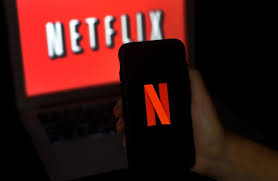Netflix, Hulu, Disney Plus Sued by Indianapolis to Collect 5% Cable Franchise Fee
Suit also names satellite TV operators DirecTV and Dish Network

The smarter way to stay on top of the streaming and OTT industry. Sign up below.
You are now subscribed
Your newsletter sign-up was successful
Four Indiana cities, including Indianapolis, have jointly filed suit in a local state court, seeking to collect “franchise fees” usually charged to cable operators from Netflix and several other video operators, none of which are cable providers.
Defendants also include Disney Plus and Hulu, as well as satellite TV companies DirecTV and Dish Network.
The cities of Fishers, Evansville and Valparaiso joined Indianapolis in filing the complaint in Marion Superior Court.
Ars Technica was first to report on the complaint.
The suit calls on the defendants to pay 5% of revenue collected in their cities as part of the Video Service Franchise Act of 2012.
“Defendants transmit video programming to Indiana subscribers using Internet protocol and other technologies,” the suit contends. “When doing so, Defendants transmit their programming through facilities located at least in part in public rights of way within the geographic boundaries of Indiana Units, including public rights of way located within Plaintiffs' geographic boundaries. Therefore, Defendants are required by the VSF Act to pay the Plaintiffs—and all other Indiana Units in which Defendants transmit video programming through facilities located at least in part in a public right-of-way—franchise fees.”
Of course, streaming and satellite video companies are laying down cable in “public rights of way.”
The smarter way to stay on top of the streaming and OTT industry. Sign up below.
"I find it extremely unlikely this lawsuit will prevail," Harold Feld, a longtime telecom attorney and senior VP of consumer-advocacy group Public Knowledge, told Ars Technica.
Not only are the plaintiffs not cable companies, Feld noted, they don’t necessarily use cable to reach their customers (although some certainly do). The broader term “broadband” isn’t narrowly defined as a cable service.
Certainly, at a time when cable companies are tacitly sunsetting their video businesses, and public coffers are lean, it’s perhaps not surprising to see municipalities chase the video money where it’s migrating.
Notably, the city of Creve Coeur, Missouri filed a similar suit against Netflix in 2018. That case is still pending.
Daniel Frankel is the managing editor of Next TV, an internet publishing vertical focused on the business of video streaming. A Los Angeles-based writer and editor who has covered the media and technology industries for more than two decades, Daniel has worked on staff for publications including E! Online, Electronic Media, Mediaweek, Variety, paidContent and GigaOm. You can start living a healthier life with greater wealth and prosperity by following Daniel on Twitter today!

